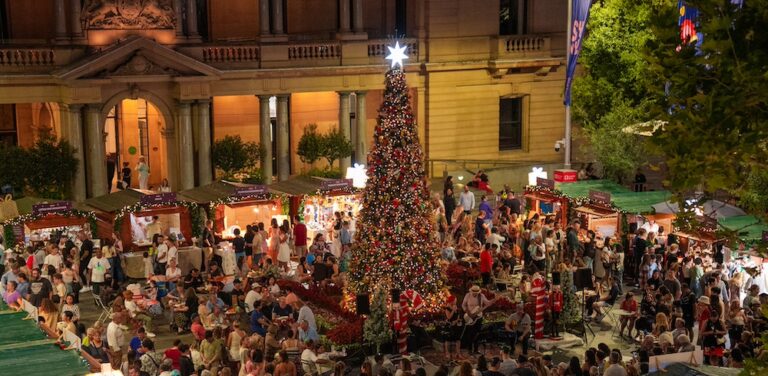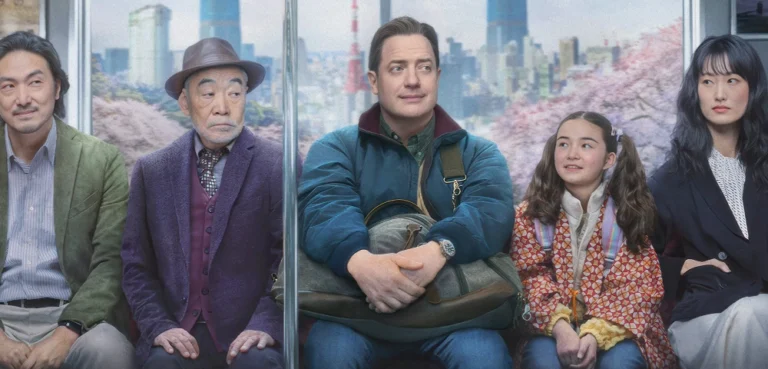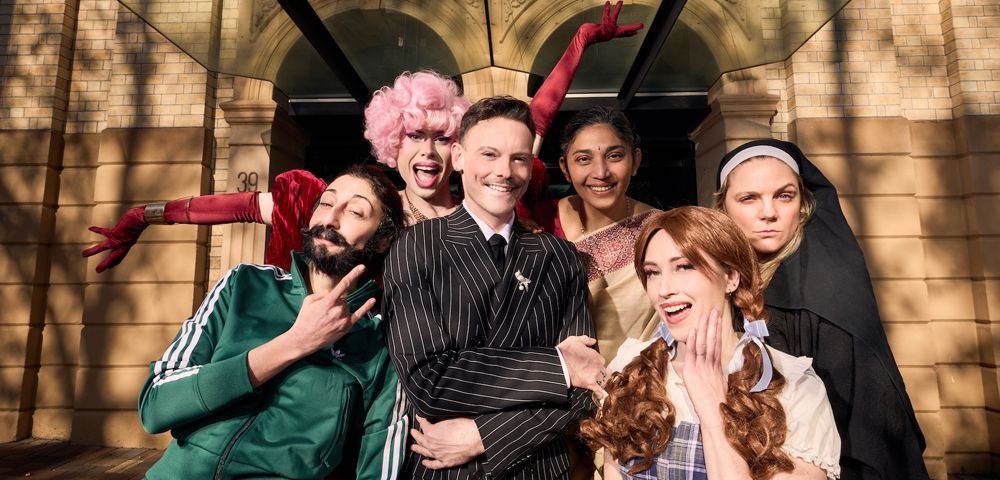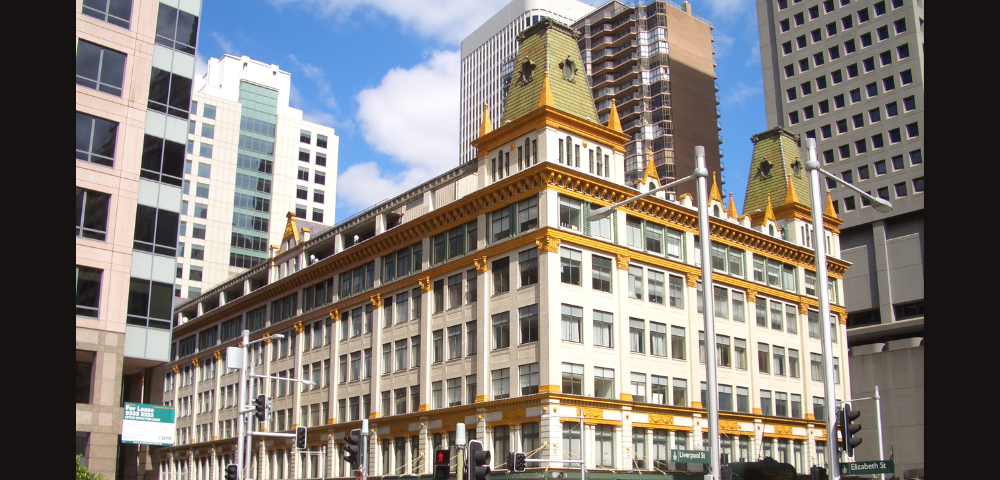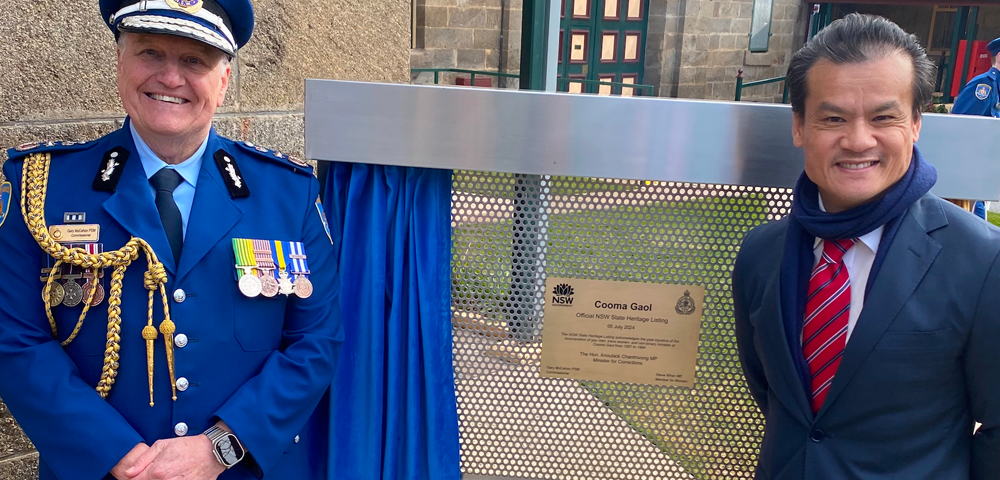
Fighting for your right to party, or at least disco all night long

About 130 people gathered at NSW Parliament to hear a debate over the state’s controversial lockout laws last Thursday.
In the debate, the Labor Party conceded that the laws may have been rushed through parliament and had had a significant effect on local businesses.
The debate was the result of a petition which sought to “Keep Sydney Open.” In NSW when a group collects more than 10,000 signatures the state parliament must debate the issue.
Greens MP for Newtown Jenny Leong tabled the petition and gave a speech littered with references to 1980s pop culture, a time when Australia was shirking its conservative culture to embrace a wilder side.
Just as she uttered the words, “Do not lock Sydney down. Keep it open; keep it safe,” there was a burst of applause from the public gallery.
The temporary speaker, Melanie Gibbons, scolded the public gallery. “Order! I remind those in the public gallery that the Parliament does not tolerate clapping in the Chamber and I ask that everyone resist the urge to clap in the future”
Like a substitute school teacher or a Victorian governess trying to appeal to the gallery’s better side, the speaker said “The audience has been very good so far, so I thank them for that,” with a small grin that undermined the authority of her language. [or, seemed to say “no sometimes means yes”.]
For a group of people who had taken umbrage with the government telling them what time to go to bed, the crowd was remarkably compliant and from then on sat listening in silence.
Ms Leong’s speech argued there were smarter and more efficient solutions to dealing with alcohol related violence than a blanket bans of the lockouts. She said that the ways in which the City had suffered were numerous, including the dearth of economic and creative opportunities in Sydney.
“Although it might be a stretch to say that we built this city on rock ‘n’ roll, nobody can deny that our music, arts and creative communities provide our city with a beating heart and they are suffering under the punitive lockout laws that were enforced across Sydney’s central business district, Kings Cross and Oxford Street.”
“How convenient that the lockout boundaries happen to miss Sydney’s existing casino, The Star. One may have noticed that they also conveniently etch around Barangaroo, the site of the city’s next gambling hub. It is not hard to see why the Premier has been nicknamed Casino Mike.”
The member for Drummoyne addressed the chamber after Ms Leong. John Sidoti said that the Callinan review, of the lockouts terms of reference would examine public safety, as well as their impact on business and the broader community. He said that the review would be conducted at arm’s length from the government.
“Mr Callinan has also been meeting with key stakeholders to hear firsthand about their experiences, both good and bad, and the impact of the regulatory reforms. This is consistent with the Government’s intention that the review be independent, open, transparent and conducted at arm’s length from Government.”
The member for Maroubra and deputy leader of the opposition Michael Daley, said that the problem of alcohol had been numerous. “I do think, without being too political, that the great flaw in these lockout laws is that they were conceived and introduced in haste. Premier Barry O’Farrell recalled Parliament and we all rushed back here in January to debate them with very little community consultation. It has been that lack of consultation, as much as anything, that has led to great concerns, and there are serious concerns.”
His concerns with the process were interpreted by the Greens as a significant sign the Labor party might be open to flexible about lockouts. The Labor member spoke about the effect on business in the chamber.
“I remember a lovely fellow who lived in my electorate whose name was John and who ran a newsagency on Oxford Street. As soon as the lockout laws were introduced he came to saw me and he said, “This is going to kill my business. I rely on passing trade at night to keep the business alive.” That business has gone now. I think he just closed the door and walked out,” Mr Daley said.
The man to whom he referred, Mark Piggott, spoke to waiting media of the anguish of closing down the 83 year old family business outside parliament.
“These laws without question are ill conceived, ill thought out, and lazy. There are so many other smart options that have been voiced here.”
He said there had been a cumulative effect which came from a drop in tourists, people going out at night, brought about by the lockouts.
“I am a news agent. I have never sold alcohol in my life, but what these laws have done is basically shut the revolving door of the City of Sydney. The newsagent, the chemist the pub, the club, you name it, have all gone.”
He said that nighttime trade would have been 60 per cent of his revenue.
Another previous business owner from the nearby Flinders Hotel near Taylor Square said that he too had lost his livelihood. He said his business had relied on trade on Friday and Satruday nights at the early hours of the morning.
Former owner of the hotel, Ashley Ryan said, “Our trade just fell away completely, in the end we had no choice but to close up.”
He said that his hotel had no history of violence, and his venue had no strikes against it.
“People just stopped coming.”
He said along with his business, he had also lost his home and his car. “At 41 years of age I am having to start my life again.”
Member for Sydney, Mr Alex Greenwich, mentioned Mr Ryan’s establishment in his speech. He agreed With Labor’s Daley that the measures had been rushed through, adding that it was without consultation.
Mr Greenwich, who voted against the legisalation along with the Greens when it was introduced said that the 1.30 lockout now effectively acted as a closing time.
“The Live Music Office reports that live performance venues in the lockout zone have lost 40 per cent in revenue from gigs, and these venues have decreased spending on live performance by 15 per cent. There are fewer places to go, with live music venues like the Flinders, the Backroom, FBI Social, Spectrum and Q Bar having closed,”
The member for Balmain, the Greens Jamie Parker said that voting against the legislation at the beginning was a Tsunami of criticism: “It is important to remember that at the time this debate was taking place, it was supported by News Limited and the Daily Telegraph, Fairfax and the Sydney Morning Herald, the Labor Party, and the Liberal Party. I am proud to say that the Independents and The Greens were the only ones that voted against this legislation and we are continuing with that campaign.”
Freelancer CEO Matt Barry, who launced a scathing attack of the laws on LinkedIn last year, told City Hub that Sydney was missing out on economic opportunities to those in Melbourne.
“There is a huge amount of economic destruction, if you look at new startups, American tech companies , the startups that are coming to Australia are going to Melbourne now, there’s been a whole slew of them.”
Mr Barry was particularly critical of the Star Casino.
“There was an analyst from Canaccord that submitted to the Callahan review – he looked at Star Group’s analyst reports, and saw there was basically a $500 million transfer payment to Star Casino from small businesses in the City of Sydney, as a result of these laws.”
“Frankly, the tourists have stopped coming and frankly anyone with half a brain who is young and intelligent they’re leaving, they want to go somewhere else to live. And frankly, I wouldn’t mind doing the same thing.”
A female health care worker from the inner-west, who attended the debate but did not wish to be named, said it seemed coincidental the government planned to sell off so many government owned buildings to developers in the inner city.
“It has become so gentrified; it has lost its tinge. People bought these million dollar apartments because they wanted to be in the city hub, and now they’re in the city hub they don’t want the noise. In every city, you have a hierarchy of people on the ground, and people from different socio economic streams – that is what makes a city a city.”
“People are losing their jobs. There is a death, culturally it is dying, which is sad for a City that is meant to be growing. It is just becoming a suburban area.”
